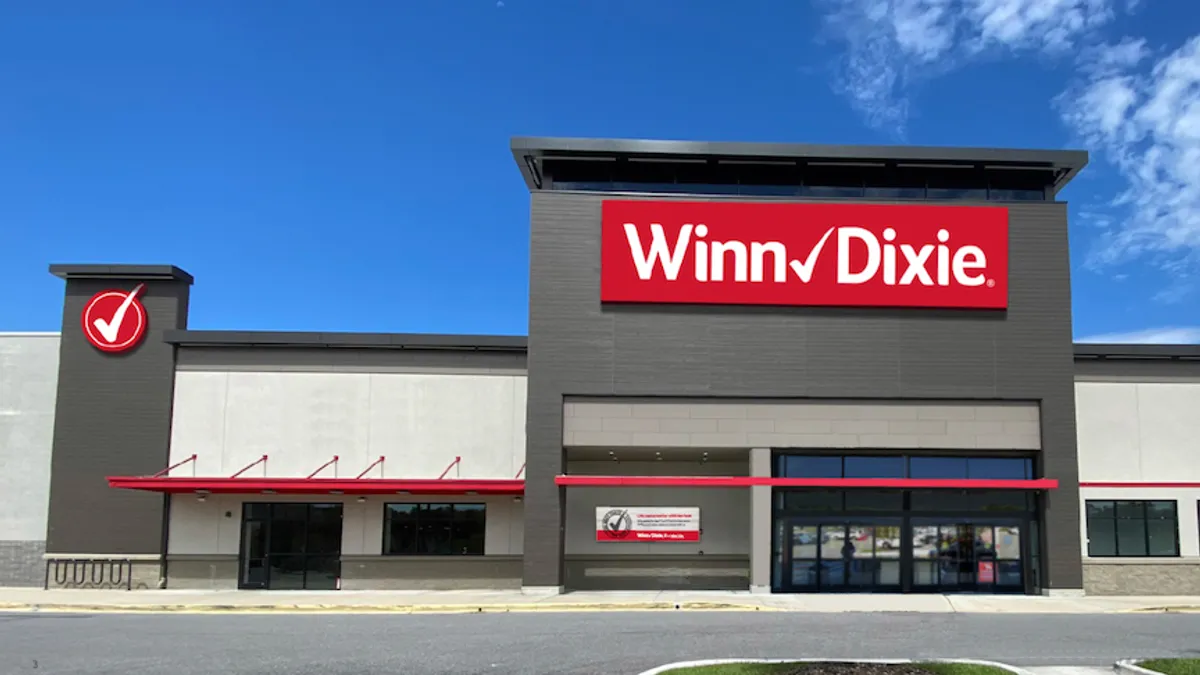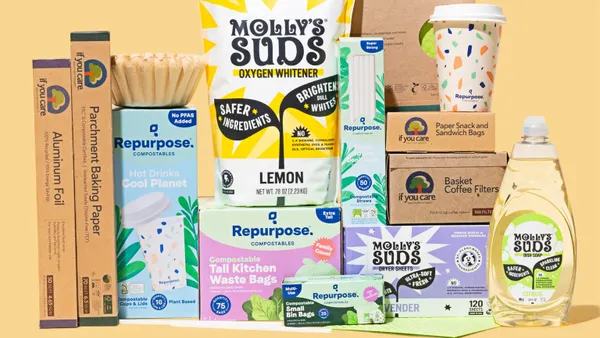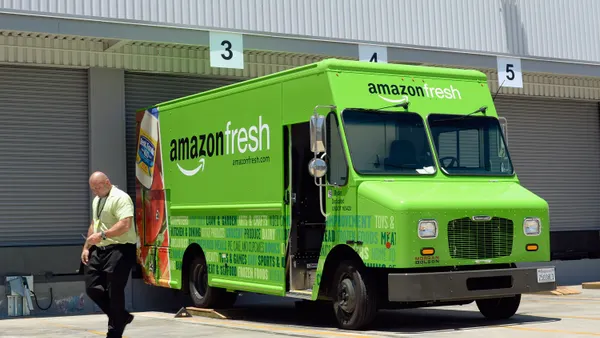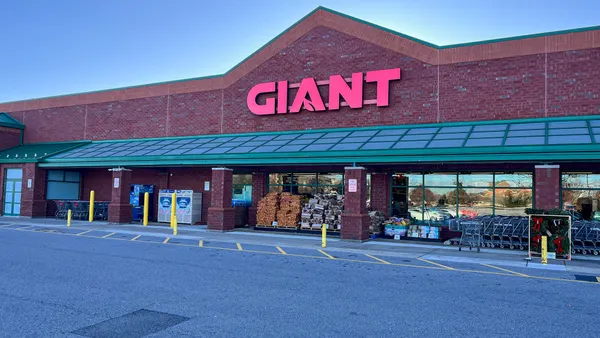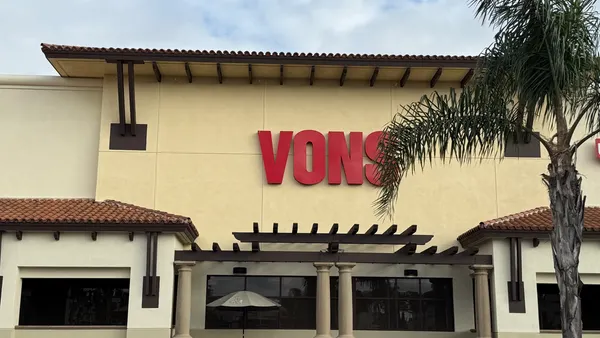Dive Brief:
- Southeastern Grocers announced on Tuesday a commitment to make its own brand packaging more sustainable by the end of 2028.
- Its plans for private label packaging include eliminating the use of polystyrene; making all packaging reusable, recyclable or industrially compostable; and using an average of 30% post-consumer recycled material in the packaging.
- The company's announcement comes as grocers increasingly focus on eco-friendly initiatives, including ones that make their products and packaging more eco-friendly.
Dive Insight:
The grocery chain, which runs the Fresco y Más, Harveys Supermarket and Winn-Dixie banners, said its private label packaging pledge stemmed from customer, workers and community member feedback that sustainable packaging is their “top sustainability concern.”
The grocery company is working with its supplier partners on the packaging sustainability goal, Anthony Hucker, president and CEO of Southeastern Grocers, said in the announcement.
In announcing the planned packaging changes, Southeastern Grocers said it has teamed up with How2Recycle, a standardized labeling system for packaging that outlines recycling instructions.
The grocer said How2Recycle, which follows guidance from the Federal Trade Commission, helps reduce confusion for consumers around how to recycle items. Southeastern Grocers will add How2Recycle labels to store brand packaging instructing shoppers on how to recycle packages and keep them out of landfills.
Southeastern Grocers is among several grocers looking to make their private label packaging more sustainable.
New Seasons Market announced last week it is rolling out more environmentally friendly packaging for its private label line of fresh pasta by transitioning to recyclable PaperSeal trays. Kroger has outlined several goals aimed at making its packaging more sustainable and pledged in 2020 to make its private label packaging more sustainable by 2030.
Following pressure from consumers and environmental groups, Trader Joe's in 2019 pledged to reduce the amount of plastic it uses in its stores, including the produce department.
Research, meanwhile, has shown that consumer demand for sustainable packaging has remained strong amid the pandemic.



